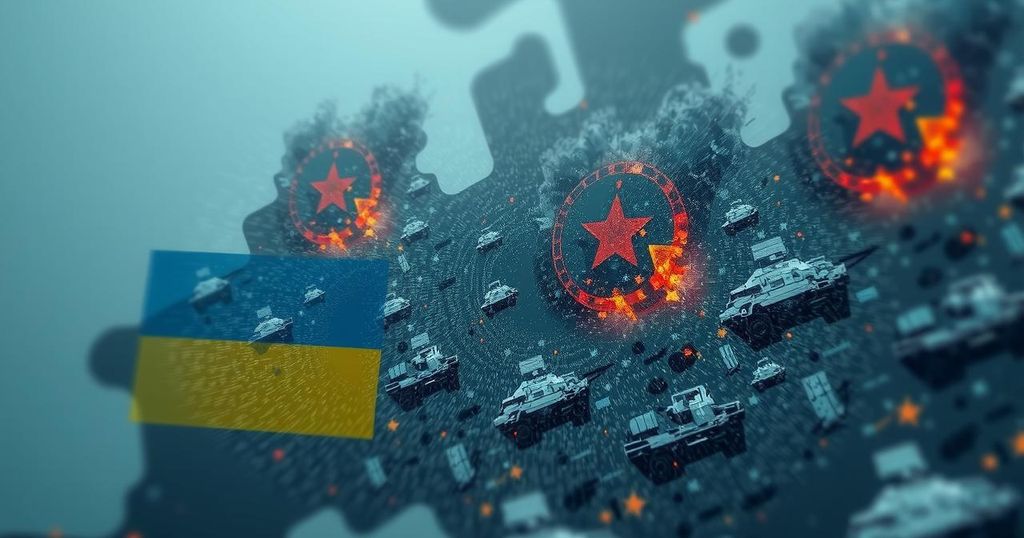Understanding the Role of North Korean Troops in the Ukraine Conflict

Recent reports indicate that North Korean troops may be engaged in combat roles in Ukraine, supporting Russian military operations. These troops, primarily drawn from elite units, could number between 11,000 and 100,000, although exact figures remain uncertain. The involvement of these troops raises concerns for South Korea, particularly given the rising tensions in the region. North Korea is expected to gain financially and technologically through this cooperation while aiding Russia in its ongoing conflict.
Recent reports have emerged regarding the potential involvement of North Korean troops in the ongoing conflict in Ukraine, primarily supporting Russian military operations. Initially, there were uncertainties concerning their roles due to their lack of combat experience. However, subsequent intelligence has indicated that these troops have already engaged Ukrainian forces, prompting a reassessment of their deployment. While estimates from the Pentagon suggested around 11,000 troops might be sent, other sources have raised the possibility of deployments reaching up to 100,000. The actual figures remain shrouded in speculation as official announcements from both Pyongyang and Moscow are lacking. The effectiveness of North Korean troops is a matter of contention. The Korean People’s Army (KPA) possesses a large number of soldiers, approximately 1.28 million, but has minimal experience in modern combat scenarios. Experts such as Mark Cancian from the Centre for Strategic and International Studies have noted that while these forces are well indoctrinated, their operational readiness is likely to be low. Notably, many of the troops reportedly deployed to Russia are from the elite 11th Corps, known for specialized training in infiltration and sabotage. Reports also indicate that North Korean soldiers are undergoing additional training in Russia to adapt to the specific challenges posed by the Ukrainian conflict. Despite inherent disadvantages, including a language barrier and unfamiliarity with Russian military logistics, these troops may be utilized for engineering and reconstruction tasks, or they could participate more actively on the front lines as their training progresses. Moscow’s decision to involve North Korean troops appears primarily motivated by its pressing manpower shortages, as it continues to suffer significant casualties in the battlefield. In return, North Korea stands to benefit financially, with estimates suggesting it could earn approximately $2,000 per soldier each month, alongside potential access to advanced military technology from Russia. This mutual cooperation represents a significant shift in the dynamics of military alliances amid the ongoing confrontation in Ukraine. The implications of North Korea’s military involvements extend beyond Russia and Ukraine, raising alarms in South Korea. Recent hostilities and military demonstrations between the two Koreas have heightened tensions, with Seoul expressing grave concern over the possibility of North Korea gaining further military capabilities through battlefield experience. In light of this development, South Korea’s government has signaled potential support for Ukraine, marking a possible reevaluation of its historical policy regarding arms supply to nations in active conflict.
The conflict in Ukraine has seen the involvement of various international actors and military forces, leading to the allegation of North Korean troops being deployed to support Russian efforts. The historical context of North Korea’s military capabilities, especially its large active military force, contrasts sharply with its recent lack of combat experience. Understanding the operational roles these troops may play involves examining both their military structure and the strategic needs of Russia amid ongoing losses in Ukraine. Furthermore, the geopolitical ramifications of this involvement are of particular concern to neighboring nations like South Korea, where tensions remain high and may escalate in response to North Korea’s actions.
In conclusion, the engagement of North Korean troops in Ukraine presents a multifaceted situation involving military strategy, international alliances, and regional security concerns. As both Moscow and Pyongyang navigate their respective needs for manpower and resources, the potential outcomes of this cooperation could significantly alter regional dynamics. South Korea’s apprehensions regarding North Korea’s enhanced military capabilities reflect broader anxieties over escalating tensions in the Korean peninsula. The ongoing developments warrant close observation as they unfold.
Original Source: www.bbc.com








